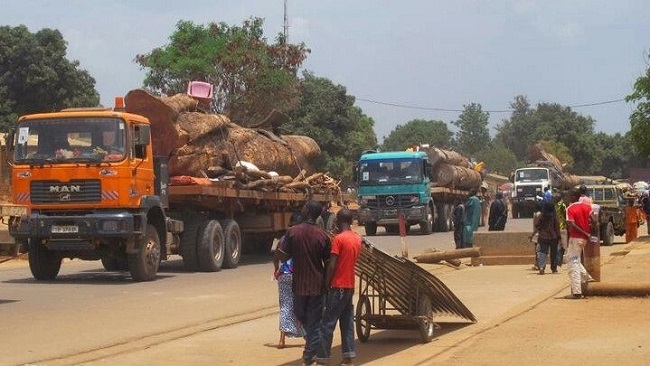25, January 2024
UN peacekeepers honor Cameroon colleague killed last week in CAR 0
UN peacekeepers in the Central African Republic (CAR) paid tribute on Wednesday to peacekeeper Emmanuel Steve Atebele of Cameroon, who was killed last week by an explosive device, a UN spokesman said.
The Jan. 15 bombing attack in Mbindali in Ouham-Pende Prefecture also wounded five other peacekeepers. But they are all now in stable condition, said Stephane Dujarric, chief spokesman for UN Secretary-General Antonio Guterres.
Dujarric said that the UN mission in CAR, known as MINUSCA, also reports that specialized units of the force, in coordination with the UN Mine Action Service, continue to work to minimize the risks linked to explosive devices.
He said they now regularly carry out clearances and destruction of unexploded ordnance operations and conduct awareness campaigns for the local population.
Peacekeepers have established a temporary operational base in Am-Dafock in Vakaga Prefecture, close to the border with Sudan, he said.
“This base will strengthen our efforts to secure the area and help prevent potential violence and tensions ahead of the seasonal movement of livestock, known as transhumance,” said the spokesman.
Source: Xinhuanet


























27, January 2024
My Trip To Buea hopes didn’t come true – Ambazonia Interim Gov’t official 0
Southern Cameroons resistance hopes against the Francophone dominated Cameroon government military did not come true, a top official in the Dabney Yerima led-Ambazonia Interim Government has conceded.
But the official who asked not to be named in this report, who presently co-ordinates Ground Zero operations, insisted: “That doesn’t mean that victory won’t be on our side.”
Vice President Dabney Yerima is currently trying to get the Southern Cameroons diaspora to rally once again behind the Interim Government, notably Southern Cameroonians in Canada and in the US.
A source in the Ambazonia Interim Government hinted that Yerima believes that at least some funding will surely come through that will facilitate Ground Zero actions this year.
Dabney Yerima has been speaking exclusively to Cameroon Concord News. He told us that upcoming events in La Republique du Cameroun will present great opportunities for Southern Cameroonians to get to Buea.
Yerima pointed out that every Southern Cameroonian citizens both at home and in the diaspora want the war to end with victory for the Federal Republic of Ambazonia.
“The fact that we have been resisting the French Cameroun military for six years is already a big victory” Yerima furthered.
Amba fighters had hoped to take control of the entire South West and North West regions from the Biya Francophone regime in Yaoundé as well as forcing the international community to recognize Southern Cameroons as an independent state.
But disunity among the frontline leaders and lack of funding has made their efforts appear to have stalled.
Many Southern Cameroons academics in the West have acknowledged that the Ambazonia Interim Government had been over-optimistic.
A blame game has crept into Ambazonia public discourse about the degree to which the Maryland Group and their fighters – are at fault for what is currently happening now in Ground Zero.
Vice President Dabney Yerima refused to be drawn on when a new push to Buea could come.
“I can say for sure that we won’t stop,” he said. “We will continue fighting for our freedom, for our independence.”
By Chi Prudence Asong in London